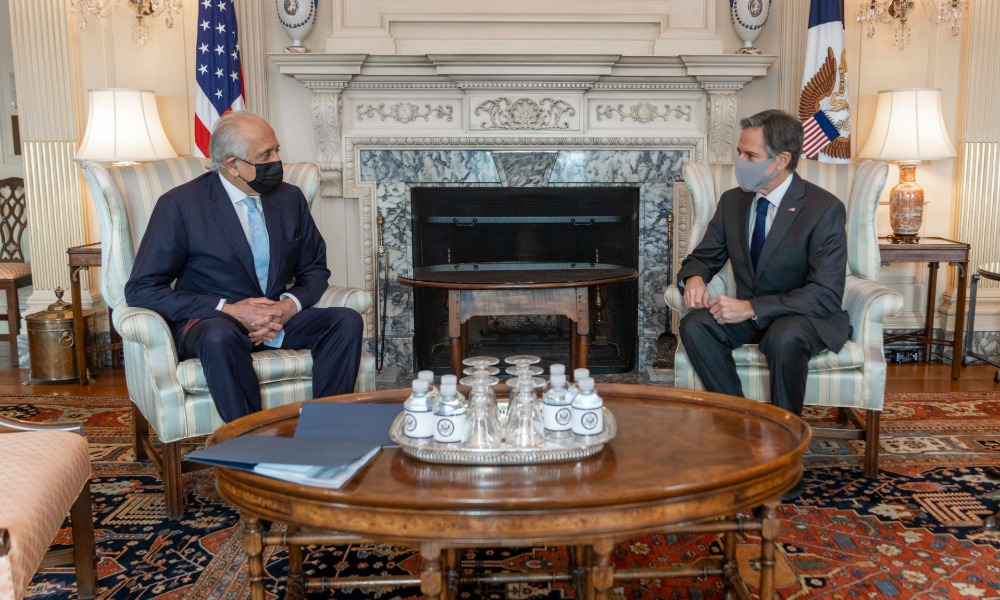US Secretary of State, Khalizad discuss Afghan peace

US Secretary of State Antony Blinken Thursday met with US Special Representative for Afghanistan Reconciliation, Zalmay Khalilzad, and discussed the Afghan peace process.
“Great meeting with Ambassador Khalilzad to discuss the way forward in Afghanistan: continuing to protect the US against the threat of terrorism, achieving a just and durable political settlement there, and cementing a permanent and comprehensive ceasefire,” Blinken said in a tweet.
Biden’s Administration has retained Khalilzad, who has for the past two years been the driving force behind the Afghan peace process, to continue the Afghan peace mission.
In a series of tweets, Khalilzad stated that he has briefed Blinken on the Afghanistan peace process “in the context of our continuing policy review.”
“We discussed the focus on our conditions-based strategy, one that brings peace to Afghanistan, secures a stable future for its citizens, and prevents anyone from using Afghanistan to threaten the United States and our allies,” Khalilzad said.
This comes as the government and the Taliban peace negotiating teams have not held any formal meetings in the last 19 days.
Meanwhile, the International Union for Muslim Scholars this week called for all Muslim scholars to work to end the conflict in Afghanistan and ensure the safety of its people.
In a statement issued by the IUMS, they said they call “on all scholars and intellectuals to strive for an end to the bloodshed, and to achieve stability and safety for the Afghan people.”
The IUMS also strongly condemned and denounced the systematic targeting of scholars and intellectuals in Afghanistan and they urged all religious scholars and intellectuals to make efforts to help stop the bloodshed and to achieve stability, security, and safety for the Afghan people.
They said the ongoing targeting of religious scholars “has dire consequences for the future of Afghanistan as well as for the region.”
The IUMS also stated that the violence and killing of innocent civilians are forbidden by Islamic laws, customs, and international laws.
The organization emphasized it “condemns all acts of violence, assassination, and terrorism against religious scholars, intellectuals, opinion-holders, and dissidents.
“The Union considers these assassinations a crime and aggression against the victims,
against the Afghan people, and an insult to Islam and Muslims.
“The Union emphasizes the prohibition of aggression and murder,” stating it is against Islam.
